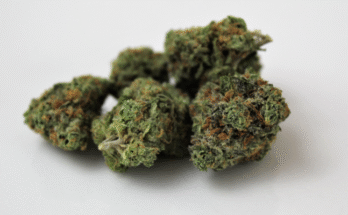More and more people are trying CBD for the first time. But before they make the leap, most of them have a lot of questions.
The most commonly asked questions are ‘is it legal?’ – which the answer to is yes – and ‘does it get you high?’ – which the answer to is no.
The next most widely asked question is: ‘Does CBD have any negative side effects?’
Too good to be true?
With all these articles appearing in newspapers and magazines claiming CBD to be a health elixir that helps treat countless medical conditions, it’s wise to take a step back and consider if CBD has any negative aspects.
While the vast majority of research suggests CBD is very safe for human consumption (even at very high doses), CBD does pose a few risks that, if not properly understood, could be problematic.
Drug interactions
One of these risks is CBD’s ability to interact with other drugs in your system.
The issue arises because CBD is metabolized by a family of enzymes called cytochrome P450. This enzyme system is also responsible for metabolizing many other pharmaceuticals – about 50-60% of them, in fact.
CBD can reduce the cytochrome CYP450 system’s ability to metabolize certain drugs, which results in an overall increase in the time it takes for your liver to process the drug in your system.
This can lessen the effects of the drug which you are taking.
Interestingly, grapefruit, watercress and St. John’s Wort also inhibit the CYP450 system. This is useful knowledge as most medications that
Upon prescription of your drug, your doctor may have also mentioned not to consume grapefruit when taking it.
If you are taking a medication that you think could be affected by cannabidiol, you should consult your doctor before using CBD in order to make sure that it is safe for you.
Low blood pressure
It has been found that a single dose of CBD reduces blood pressure in healthy subjects. This means that using CBD could potentially pose a risk to those who already have low blood pressure.
However, it seems that only high doses of CBD have this effect. And, even then, the effects wore off pretty quickly.
Drowsiness
Some studies have found that, while low doses of CBD can induce alertness, higher doses can make you tired and drowsy.
This can, of course, be useful to people looking for a sleep aid. However, not some people need to use CBD throughout the day.
While high dosed of CBD don’t affect everyone this way, it may be worth carefully monitoring your dosing and lowering it if you feel tired or fatigued in any way after taking CBD.
Other possible side effects of CBD
The other most common adverse effects found in scientific studies were as follows:
- Decreased appetite
- Vomiting
- Diarrhoea
A side note on smoking CBD
Obviously smoking CBD may come with its own health risks. This is more down to the act of combustion, which can produce harmful chemicals, than the CBD itself.
Avoiding combustion (by vaping CBD flower rather than smoking it, for example) is advised for minimising any negative health effects.




